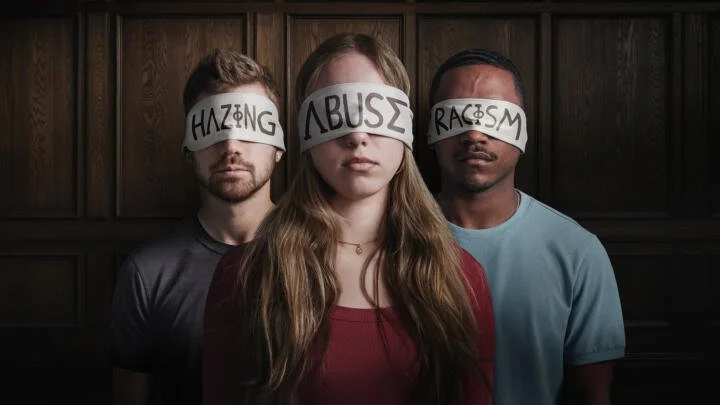From Team Spirit to Toxic Culture: Where We Draw the Line
Sports are built on teamwork, trust, and respect. At their best, teams feel like families. Teams push each other to grow, to compete, and to achieve something bigger than themselves. But sometimes, the line between “team bonding” and harmful behavior gets blurred. When teasing turns into humiliation, or initiation becomes intimidation, it’s no longer team culture—it’s hazing and bullying. As we move from September’s Hazing Prevention Awareness Month, continue to educate yourself on the concerns associated with hazing.
The Hidden Harm Behind “Tradition”
Bullying and hazing are usually disguised as innocent initiation rituals; something "everyone does." But the truth is, they inflict irreparable psychological, emotional, and even physical harm. Whether it's humiliation, social exclusion, physical barriers, or cyberbullying, all of these activities are a breach of trust and destroy the very foundations of what makes for a good team to be strong: respect and solidarity.
For athletes, there is a sense of wanting to "fit in" or "tough it out" that blurs expressing the objection. Some are silent because they do not want to risk losing their place, their friends, or their standing. Silence allows the harm to continue.
Recognizing the Signs
Not all hazing looks obvious. Some signs that an athlete might be experiencing hazing or bullying include:
● Sudden changes in mood, sleep, or academic performance
●Withdrawal from teammates or social events
● Unexplained injuries or frequent “accidents”
● Jokes or comments about being “initiated” or “targeted”
● Reluctance to attend team practices or meetings
If something feels off it probably is.
Changing the Culture
Building a healthy team culture starts with leadership and accountability. Coaches, captains, and teammates all play a role in setting the tone.
Here’s how everyone can help:
✔ Lead with Respect: Encourage inclusivity, not intimidation. Every athlete deserves to feel valued and safe.
✔ Speak Up: If you witness hazing or bullying, report it. Silence protects abusers, not teammates.
✔ Check In: Sometimes the strongest athletes are struggling the most. Ask how your teammates are really doing.
✔ Know the Difference: Team bonding should build people up, not tear them down.
The Real Strength of a Team
True strength isn’t found in fear it’s found in respect, trust, and integrity. Standing up against hazing and bullying doesn’t make you weak; it makes you a leader. Together, athletes can redefine what it means to be a team. Because a real team protects its own.
You’re Not Alone — Support Is Here
If you or someone you know is struggling, help is available. You don’t have to face it alone.
Sport Psychology & Counseling:
Current LSU student-athletes can access confidential counseling and mental health support through LSU Sport Psychology & Counseling Services.
LSU Division of Engagement, Civil Rights, & Title IX:
The Office of Civil Rights & Title IX (OCR & TIX) oversees the university’s commitment to providing a place to learn and work that is free from harassment and discrimination. Click HERE to learn more and/or report hazing. This form is designed to provide students, employees, vendors, visitors, or others with an on-line method to report specific information related to an alleged incident(s) of sex and gender harassment and discrimination policies, including sexual misconduct and power-based violence.
Suicide & Crisis Lifeline:
Call or text 988 for free, 24/7 support for anyone in emotional distress or crisis.
The Phone:
LSU 24-Hour Crisis Line & Campus Resources. Call 225-578-LSU1 (5781) for immediate crisis assistance and information about on-campus support.
SAMHSA National Helpline:(Substance Use)
Call 1-800-662-HELP (4357) for confidential, 24/7 support for substance use and mental health concerns.


